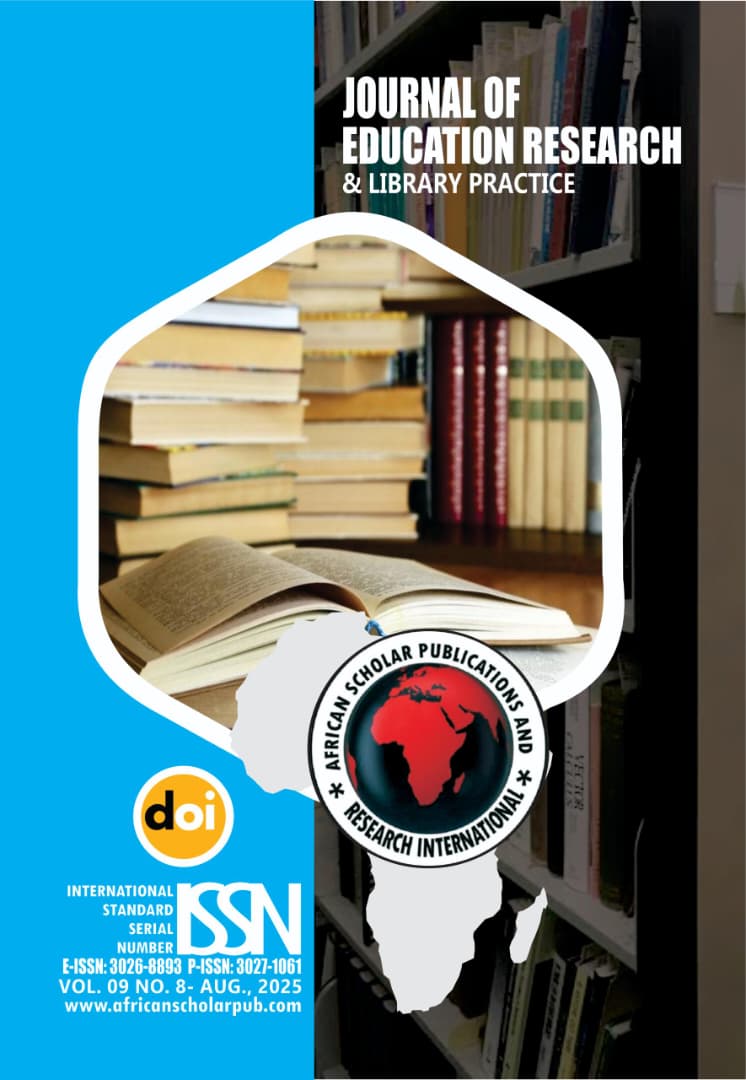Self-Concept, Self-Efficacy and Parental Involvement as Predictors of Academic Achievement of Junior Secondary School Students in Delta South Senatorial District
Abstract
This research focuses on self-concept, self-efficacy, and parental involvement as factors predicting the academic success of junior secondary school students in the Delta South Senatorial District. Four research questions and two hypotheses were created and examined. A correlational ex-post facto research design was used for this study. The study's population includes 9,524 J.S.S. III students from all public secondary schools in the Delta South Senatorial District of Delta State during the 204/2025 academic year. The sample comprises 368 JSS III students chosen from 23 secondary schools in the Delta South Senatorial District of Delta State. A multi-stage sampling method, including simple random sampling, was utilized to select the sample for this research. Data was collected using a questionnaire named "Self-concept, Self-efficacy, Parental Involvement Questionnaire (SCSEPIQ)." The face, content, and construct validity of the instruments were assessed. The reliability of the instruments was also evaluated, and the internal consistency reliability coefficients for the Self-concept Scale, Self-efficacy Scale, and Parent Involvement Scales were found to be 0.76, 0.78, and 0.87, respectively. The collected data were analyzed using basic correlation and regression at a significance level of 0.05. The study's findings indicated a significant relationship between self-concept and the academic achievement of junior secondary school students in the Delta South Senatorial District. Additionally, there was a significant relationship between self-efficacy and academic achievement in the Delta Central South District. Furthermore, a significant relationship was found between parental involvement and academic achievement among junior secondary school students in the Delta South Senatorial District. There was also a significant relationship among self-concept, self-efficacy, parental involvement, and academic achievement in this district. Based on these findings, it is recommended that school administrators allocate more resources to help students improve their self-efficacy and self-concept, and that parents provide encouragement and appropriate learning resources for their low-achieving children at home.
Keywords:
Students, Parents, Academic Performance, Delta South Senatorial Districts, Self-Concept, Self-EfficacyDownloads
Downloads
ACCESSES
Published
Issue
Section
License
Copyright (c) 2025 Umanah F. I., Oyibo R. U., Rita C. N., Bashir M. A., Ibebuike U. O., Obruche E. K. (Author)

This work is licensed under a Creative Commons Attribution 4.0 International License.


















